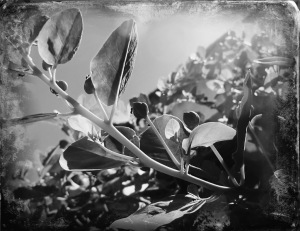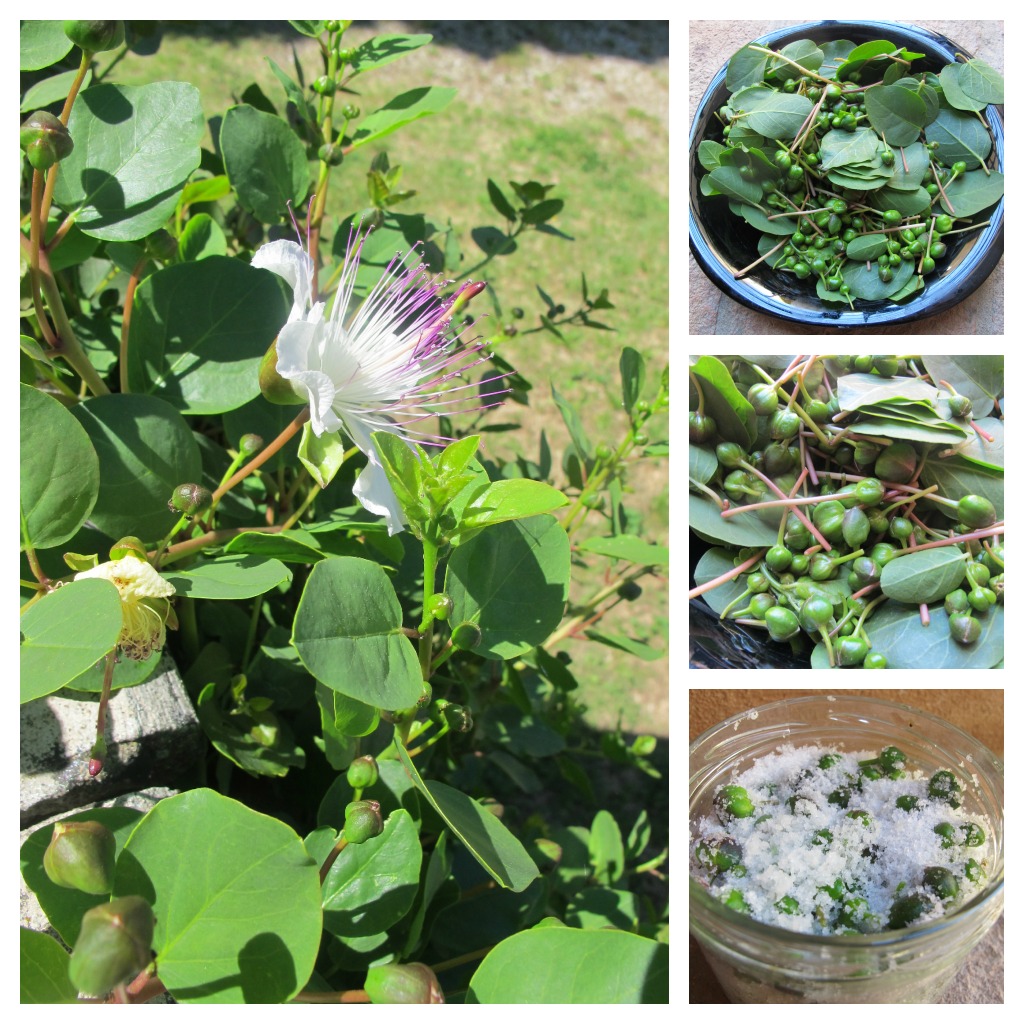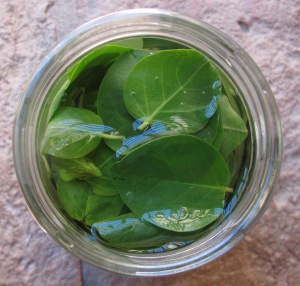Have been busy just enjoying the season and finally switching to summer. We have had prosciutto and melon a couple of times for dinner already, but no local melons yet and I cannot tell you how much better something tastes without having been in the fridge.
We are lucky enough to be able to buy fresh fruit and vegetables in season at the local farmer’s market twice a week in our village. We do fill in with some grocery store fruits and vegetables, but then to just wait for something to be in season here.
I haven’t had anything to preserve for my keeping kitchen, until now.
 capers are an ancient plant used in Mediterranean cuisine
capers are an ancient plant used in Mediterranean cuisine
Capers!
How many of you have ever seen capers growing?
Here in Tuscany, they can be seen growing out of rock walls, even in Florence.
I am lucky, just in the little piazza where we park our car, there are capers growing on the church wall.
Recently, I had heard about the use of caper leaves in cooking in Greece and in Turkey. This year I will have some of my own. I have prepared grape leaves myself years ago for dolmades and immagine it will be the same.
 This week, for my keeping kitchen entry I am reaching into my mediterranean kitchen for one of the oldest seasonings.
This week, for my keeping kitchen entry I am reaching into my mediterranean kitchen for one of the oldest seasonings.
Salt cured capers and their leaves, brined.
For years, salt has been used for preserving. Sea salt has no additives and is the best to use.
Today, I went and gathered both the capers and their leaves. Capers are the unopened buds of the Capparis Spinosa bush.They are best when picked small and then can be salt cured or brined.

As when I cure my own olives, the tiny caper berries are rinsed off, then packed in fine sea salt. As the salt draws the water out of the caper buds, I will drain it off and then keep the capers in a small amount of salt to use later.
People often rinse them off before adding to the dish, I just add them and use them as the salt for the dish!
This year I am also trying something new. Preserved caper leaves.I am going to use this process of the lacto-fermentation for the leaves.
Leaching the bitter flavor out of the leaves and then brining them. I will soak the leave in water and then make a salt water brine to “pickle” them.
They are served with fish or in salads.


Imagine the magic of living where one has wild capers growing outside here and there, swoon…
What a great post! I’ve seen fresh caper berries at the market on a couple of occasions, and I’ve always wanted to try salt curing them. Now, I’ll know what to do.
I wonder, do the caper flowers have any scent? I once had a client ask me for a fragrance based on the caper flowers (although he hadn’t smelled them himself!), but we couldn’t find any. But ever since then I’ve been wonder what they smell like.
@victoria i will go and “Smell” the caper blossoms to see if they do have a fragrance…
they plant does have a fragrance… not sure if i can describe it.
we soak the buds and leaves to leach out the mustard oil in them.